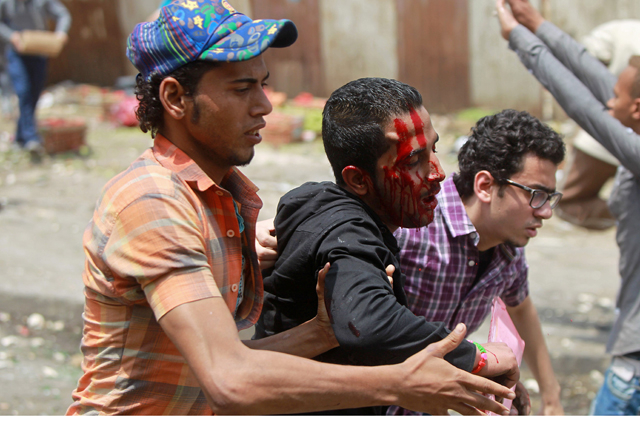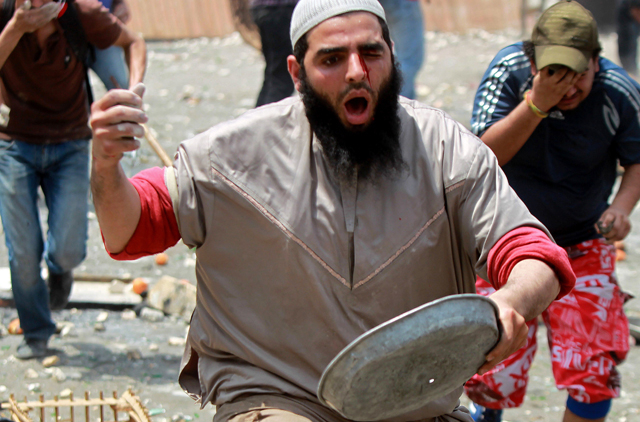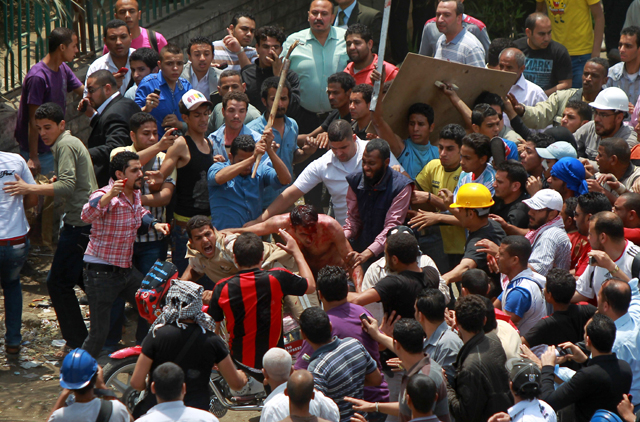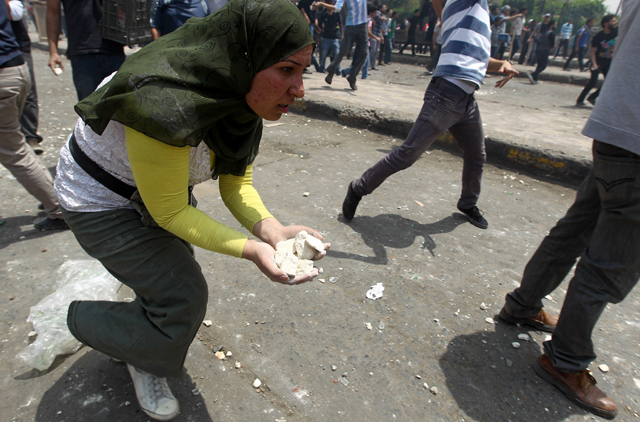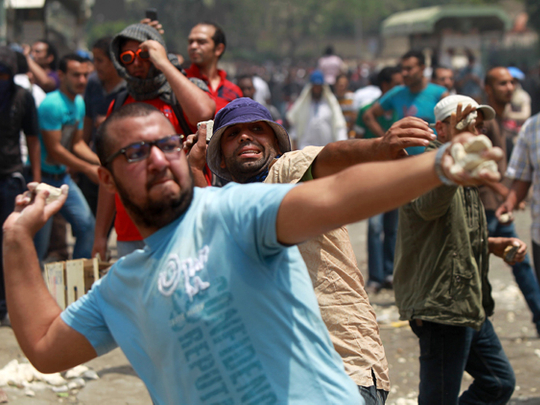
Cairo: Twenty people were killed in clashes as attackers stormed an anti-military protest near the defence ministry in the Egyptian capital on Wednesday, medics said.
A doctor at a field hospital set up in the area said 20 people were killed and dozens injured.
The protesters, supporters of Salafist politician Hazem Abu Esmail, had been camped out since Saturday after the electoral commission barred the popular hardline Islamist from contesting next month's presidential election.
Petrol bombs, guns
Earlier it was reported six people were killed on Wednesday when unknown attackers cracked down on anti-military protesters in Cairo, according to medical activists.
"Thugs armed with petrol bombs and guns attacked the protesters camping near the Defence Ministry in Abassiya (in eastern Cairo)," said a medical activist manning a field hospital in the area.
He added that at least 40 others were injured in the ensuing clashes between the attackers and the protesters.
The assailants also used stones, stones and birdshot in their attack, the latest since hundreds of protesters, mainly Islamists, started on Saturday a sit-in near the Defence Ministry, according to witnesses.
The protesters are demanding an end to the military rule of the country and sacking an official commission overseeing Egypt's first presidential election since Hosni Mubarak's overthrow in February last year.
They accuse the commission of being biased after disqualifying the populist anti-US preacher Salah Abu Ismail and the influential Muslim Brotherhood's deputy leader Khairat Al Shater from the two-round race due to start on May 23-24.
The commission said Abu Ismail was excluded because his mother was a US citizen, while Al Shater was convicted by a military court under Mubarak—making both ineligible for standing for president.
— With input from AFP


